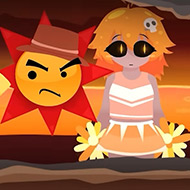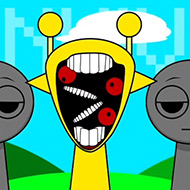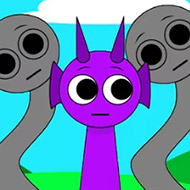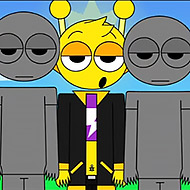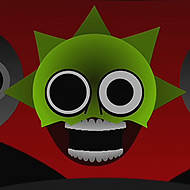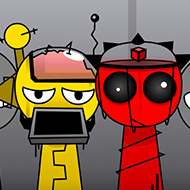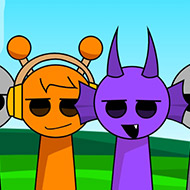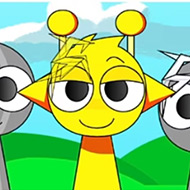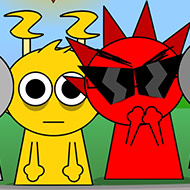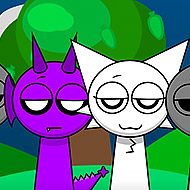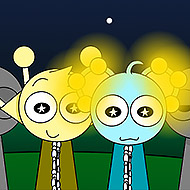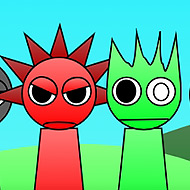Sprunki 1996 is a nostalgic dive into an alternate past, where pixel audio, CRT fuzz, and dreamlike distortions rule the scene. This game fully embraces an aesthetic of retro futurism, combining chiptune-style tracks with lo-fi dream logic and an atmosphere of faded memory. It’s Sprunki, reimagined through the haze of a forgotten decade.
Lo-Fi Echoes and Dream Logic
Each stage in Sprunki 1996 unfolds like an unstable memory. The game’s sound design uses degraded samples, static overlays, and looping 16-bit harmonies that morph unexpectedly. Unlike traditional rhythm formats, this game leans into musical uncertainty—you’re not always sure if you’re moving forward or deeper into a looping void.
-
• Glitched motifs: Fragmented sound clips challenge your sense of timing and structure.
• Retro loops: Short audio segments that restart unpredictably, testing your reaction under distortion.
• Filter shifts: Each level changes its soundscape based on actions, not sequence.
What Makes Sprunki 1996 Unique?
This game separates itself from other Sprunki entries by recontextualizing the past. You won’t just hear music—you’ll feel like you’re chasing echoes. Tracks seem familiar at first, then unravel into warped, uncanny reflections of earlier motifs. The game plays with nostalgia as a mechanic, asking players to trust or challenge their memory of how the music should go.
-
• Flashback events: Certain stages suddenly rewind, reintroducing motifs with reversed pitches or new tempo.
• Memory Mode: Remove current sounds entirely and play based on remembered cues.
• Hidden decay tracks: Discover alternate endings by locating intentionally degraded tunes.
Unlockable Layers and Experimental Tools
Players can engage with the game through various tools and hacks designed to deepen the dream experience. These features allow you to interact with music structure in experimental ways—pausing one frequency band while amplifying another, or selectively muting instruments to isolate meaning. It’s abstract, yet rewarding for those willing to dive in.
-
• Phase Diver: A toggle that lets you jump into previous sound phases mid-level.
• Glitch Index: Manually add audio imperfections to unlock cryptic achievements.
• Analog Challenge: Disable all visual cues and play using sound alone.
Sprunki 1996 isn’t just a game—it’s an auditory artifact lost in time. With its hazy audio puzzles and surreal mechanics, this entry invites you to experience music in a way that’s raw, unpredictable, and deeply personal.















































